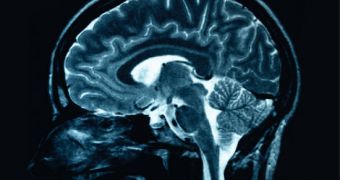Nearly half of the individuals suffering with depression relapse not long after receiving treatment. Researchers now say that depression patients could benefit greatly from doctors' using brain scans to figure out which treatment option would best work for them.
A paper published in a recent issue of the journal JAMA Psychiatry details how, for the time being, depression is treated either with drugs or with behavioral therapy.
However, people respond differently to these two forms of treatment, and what helps some might not help others.
Neurologist Helen Mayberg and her fellow researchers believe that a biomarker that could be pinned down with the help of brain scans has high chances of helping doctors by indicating how a patient will most likely respond to either drugs or behavioral therapy.
“Currently, fewer than 40% of patients treated for major depressive disorder achieve remission with initial treatment.”
“Identification of a biological marker that might improve these odds could have significant health and economic impact,” the scientists write in their paper.
Nature reports that specialist Helen Mayberg and her colleagues are confident that analyzing glucose metabolism in certain areas of the brains of depression patients holds the key to settling on a correct course of treatment.
The brain area targeted by the researchers as part of this investigation was the right anterior insula, the same source informs us.
Thus, experiments carried out with the help of several volunteers have shown that people whose glucose-metabolism levels in the right anterior insula were above the average level for the rest of the brain responded better to drug therapy.
Those whose insula-glucose metabolism levels were below average were found to respond better to behavioral therapy.
Further research on the matter at hand is needed and the researchers caution that it might be some years before brain scans start being used to this purpose.
However, many agree that the findings of this investigation are encouraging.

 14 DAY TRIAL //
14 DAY TRIAL //